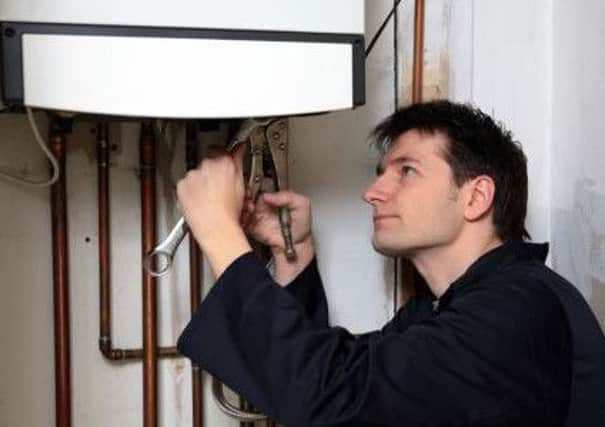Tap into a career in plumbing


As a plumber you would fit, service and repair water pipes and heating systems in homes and businesses.
To become a qualified plumber you will need to achieve a level 2 or 3 plumbing qualification, depending on your experience.
Advertisement
Hide AdAdvertisement
Hide AdYou will need to follow technical drawings and plans, and have a careful and well ordered approach to work. You will also need good customer care skills
Depending on whether you work in homes, industrial or commercial locations, your job could include:
l installing and repairing water supplies, heating systems and drainage
l servicing gas and oil-fired central heating systems, boilers and radiators
Advertisement
Hide AdAdvertisement
Hide Adl installing and fixing domestic appliances like showers and washing machines
l servicing air-conditioning and ventilation units
l fitting weather-proof materials, joints and flashings to roofs, chimneys and walls.
On all jobs you would use hand and power tools, which could include welding.
As an experienced plumber, you might specialise in sheet metal work for industrial, commercial or historical buildings.
Advertisement
Hide AdAdvertisement
Hide AdYou would work around 40 hours a week, with the possibility of overtime. Some employers offer a 24-hour call-out service, which would involve working unsocial hours (like evenings, weekends and public holidays). As a self-employed plumber you would set your own hours.
You could work indoors, sometimes in cramped spaces, and outdoors in all weather conditions. Some work may be at heights, for example on scaffolding to repair guttering or leadwork on roofs.
You would travel locally between jobs, and some contracts may involve overnight stays away from home.
Starting salaries for newly qualified plumbers can be between £16,500 and £21,000 a year. Experienced plumbers can earn between £21,000 and £35,000 a year.
Advertisement
Hide AdAdvertisement
Hide AdTo become a qualified plumber you will need an industry-recognised qualification at level 2 or 3. The level required will depend on the amount of experience you have. For example, if you’ve worked in the industry for several years, a level 2 qualification may be enough, although you would be encouraged to complete training at level 3.
The main qualifications are: Level 2/3 Diploma Plumbing and Heating and Level 2/3 Diploma Installing and Maintaining Domestic Heating Systems.